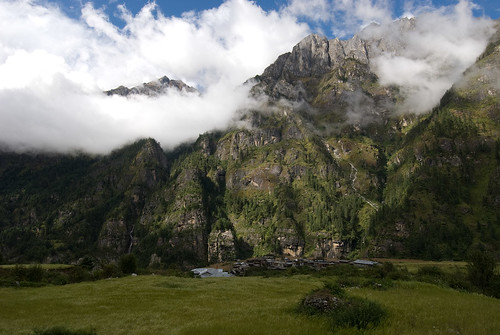By Shrawan Sharma, published in The Rising Nepal daily online on January 24, 2022.
With the climate change posing a survival threat to humanity, the political discourse has undergone a drastic change. It has acquired new language, logic and content after the nations faced water, health, food, energy and climate crises globally. Along with the traditional determinants of politics such as ideology, demography, cultural values and religious beliefs, the disruptions in the environmental systems have become driving factor of politics. Currently, the health of the planet earth as well as its ecological balance has become a matter of serious concern as climate change has hit them, creating a set of problems for governance and social order.
In 1972, law professor Christopher D. Stone published a book ‘Should Trees Have Standing? Law, Morality, and the Environment’ that impacted the US Supreme Court’s verdict on Sierra Club v. Morton case in 1972. It has, for the first time, established the right of nature that is now perceived as a legal remedy to the environmental crisis facing the people worldwide.
Climate change
Through his Gaia hypothesis, British scientist James Lovelock has proved that biosphere, atmosphere, ocean and soil interact with each other to maintain their own existence. Lovelock has also described that the sun was twenty five times warmer before the life began on earth. This was indeed a startling revelation about the planet we live on. Millions of researches on earth, ocean, atmosphere, biodiversity and microbial organism have already been carried out. A common finding of all studies clearly shows that the earth’s climate has rapidly been changing owing to the increased global warming.
If we come to the foundation of our civilisation, the Vedic and Upanishads literatures have presented many astounding facts about nature. In Hinduism, nature has been treated as God or divine entity. The Vedic epoch has shown its intelligence by decentralising power to ensure that the air, water and energy are kept intact. Rigveda says that who do not know about the tree are fool. It has underscored the importance of trees for all – Sanyasi or the ordinary beings. The Hindu philosophy believes that divine spirit exists in all living and non-living beings, including air, water, earth and trees in different forms. Hinduism defines the role of all living and non-living creatures as they observe their rituals as per the rules of divine authority. It means everything has soul — atma…
Read the full article in The Rising Nepal.
Photo credit: “Nepal” by przemion is licensed under CC BY-NC-SA 2.0

